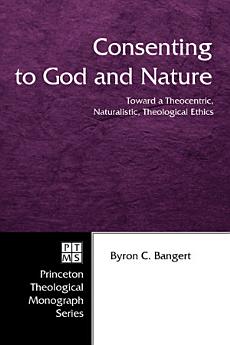Consenting to God and Nature: Toward a Theocentric, Naturalistic, Theological Ethics
Byron C. Bangert
Mar 2006 · Princeton Theological Monograph Series Book 55 · Wipf and Stock Publishers
Ebook
272
Pages
family_home
Eligible
info
reportRatings and reviews aren’t verified Learn More
About this ebook
This book, an exploration in theological ethics, is motivated by two central questions. First: How can we think and speak with integrity about God as One who is active in human affairs and the world? How can God make a difference in our world and in our lives? Second, and no less important: What is the character of God's activity in the world, and how are we to relate and respond to this activity? How does God make a difference in our world and our lives, and what are some of the implications for our own actions?
As the book's title indicates, Bangert claims that a proper engagement in theological ethics requires both consenting to God and consenting to nature. This means both consenting to the reality that is God, the One with whom we ultimately have to do, and the acceptance of the natural or physical world as hugely determinative of the limits and possibilities of human life and all existence. He argues that this calls for a theocentric, naturalistic, theological ethics.
Bangert shows how the work of three major contemporary Protestant thinkers, James M. Gustafson, Sallie McFague, and David Ray Griffin, may be fruitfully appropriated for the articulation of just such an ethics, one that is responsive to the Christian tradition while also sharing the modern commitment's appeal to human experience and reason. Each of these three thinkers eschews a priori appeal to the authority of religious tradition, as each takes seriously scientific knowledge of our world. Each accents ways in which current scientific understandings inform, and in some cases are informed by, contemporary appropriations of the language and thought of Christian tradition. Each is also concerned to relate his or her approach to human valuing, life, and action. A critical appraisal of their work shows that none provides a sufficient basis for an intellectually and religiously adequate theological ethics, but that each contributes elements necessary to the articulation of such an ethics within the Protestant Christian tradition as it confronts the religious and intellectual challenges of today's world.
As the book's title indicates, Bangert claims that a proper engagement in theological ethics requires both consenting to God and consenting to nature. This means both consenting to the reality that is God, the One with whom we ultimately have to do, and the acceptance of the natural or physical world as hugely determinative of the limits and possibilities of human life and all existence. He argues that this calls for a theocentric, naturalistic, theological ethics.
Bangert shows how the work of three major contemporary Protestant thinkers, James M. Gustafson, Sallie McFague, and David Ray Griffin, may be fruitfully appropriated for the articulation of just such an ethics, one that is responsive to the Christian tradition while also sharing the modern commitment's appeal to human experience and reason. Each of these three thinkers eschews a priori appeal to the authority of religious tradition, as each takes seriously scientific knowledge of our world. Each accents ways in which current scientific understandings inform, and in some cases are informed by, contemporary appropriations of the language and thought of Christian tradition. Each is also concerned to relate his or her approach to human valuing, life, and action. A critical appraisal of their work shows that none provides a sufficient basis for an intellectually and religiously adequate theological ethics, but that each contributes elements necessary to the articulation of such an ethics within the Protestant Christian tradition as it confronts the religious and intellectual challenges of today's world.
About the author
Byron C. Bangert is Research Associate at the Poynter Center for the Study of Ethics and American Institutions at Indiana University, Bloomington. He is also an ordained minister in the Presbyterian Church (U.S.A.), with over 25 years' experience as a parish minister. His Ph.D. in religious studies is from Indiana University.
Rate this ebook
Tell us what you think.
Reading information
Smartphones and tablets
Install the Google Play Books app for Android and iPad/iPhone. It syncs automatically with your account and allows you to read online or offline wherever you are.
Laptops and computers
You can listen to audiobooks purchased on Google Play using your computer's web browser.
eReaders and other devices
To read on e-ink devices like Kobo eReaders, you'll need to download a file and transfer it to your device. Follow the detailed Help Center instructions to transfer the files to supported eReaders.







